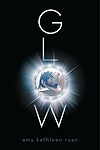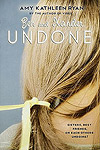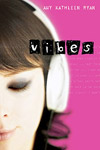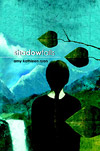No, I'm not talking about Ozzy Osborn fans. I'm talking about toddlers, the little people with huge emotions, and a specific subset of these little people: Headbangers.
Baby Girl is a head banger. Her anger and frustration escalate so quickly and to such proportions that she can't express her feelings any other way than thudding her head on something hard. Wood door. Wood floor. Sometimes she'll just hit herself with whatever she's holding in her hand: baby doll, magic marker, Play-Doh, her sister's head. It's shocking and scary and very upsetting to behold.
The first thing people always say when I share this is: "Is she autistic?"
"No. She is not autistic."
Then I get the sideways glance, the thoughtful pause in the conversation, and we move on to another topic, because my head banger toddler makes people anxious.
Oh believe me, she makes no one more anxious than me.
But she shouldn't. She has been looked at by occupational therapists, behaviorists, and pediatricians, and they all give her a clean bill of psychological health. She's just a normal kid who, when she feels bad, copes by banging her head. In truth, about 20% of toddlers do this, almost all of them healthy kids who, when they're really mad, put bruises on their dear little foreheads. And believe me, it's awkward walking around with a bruised kid. I have never, ever hit my kids. Ever once. Never. But people wonder about me when they see those bruises, and that hurts.
If you have come to this blog post, I'm assuming it's because you are out of ideas and you've performed a desperate internet search looking for answers. I got all kinds of advice from all kinds of experts, and ALL of them told me some version of this: "Put her in a safe place where she can't hurt herself, ignore the behavior, and she'll stop it."
I followed their advice. I bought a play yard, covered it with foam so she couldn't hurt herself, and we named it The Thunderdome. When she lost control, we'd put her there, saying something like, "You're not allowed to bang your head," and we'd let her tantrum run out. I was told by doctors and occupational therapists and behaviorists and speech therapists this was the right thing to do. For more time than I want to admit here, baffled and scared and worried, I ignored her head banging, walked away, withheld the attention she was supposedly seeking with this violence, assured by these folks she would get the message and stop.
Did she stop? No. She did not stop. In fact, it got worse.
Finally, one day we realized that maybe not every emotion a kid has is meant to seek attention. Maybe not every single behavior they engage in isn't about making Mommy pick me up. Maybe our poor baby girl was banging her head because she didn't know what else to do. Her emotions were just as scary to her as they were to us, and this practice of isolating her was making her feel alone and rejected when she most needed love and understanding.
It makes me weep. But at least we caught it while she's still young.
We retired Thunderdome. We said goodbye to those well meaning experts. Now, when I see her escalating, getting ready to bang her head with something, I don't walk away, I don't isolate her. I get down on one knee, put a hand on her back and say softly, "You're feeling really frustrated right now! I don't blame you! You wanted things to go another way and they didn't work out, and now you're upset! Let me give you a hug sweetie."
Empathy. Lots and lots of empathy, with a very soft soothing voice, and a gentle touch.
It doesn't always work perfectly, but more and more she puts down the hard object. She comes into my arms. She snuggles against my neck, and I kiss her little cheeks.
Which is what I wanted to do the whole damn time.
Is there a moral to this story? There is, and it's this: When your kid is feeling out of control and scared, don't give her the message you don't want to be around her. Give her the message you love her, you're there to support her. Instead of banging her head, she'll eventually come to you for hugs, and everyone in the house will be MUCH happier. Always, ALWAYS, err on the side of love.
And read this book:
http://www.amazon.com/No-Drama-Discipline-Whole-Brain-Nurture-Developing/dp/0345548043http://www.amazon.com/No-Drama-Discipline-Whole-Brain-Nurture-Developing/dp/0345548043
Friday, November 7, 2014
Subscribe to:
Posts (Atom)











